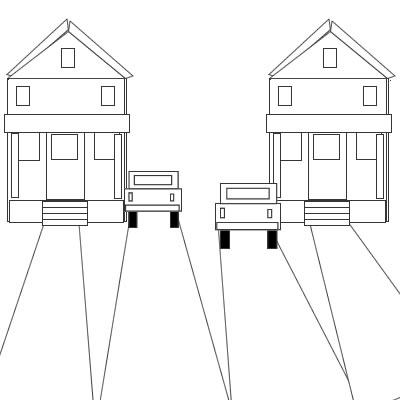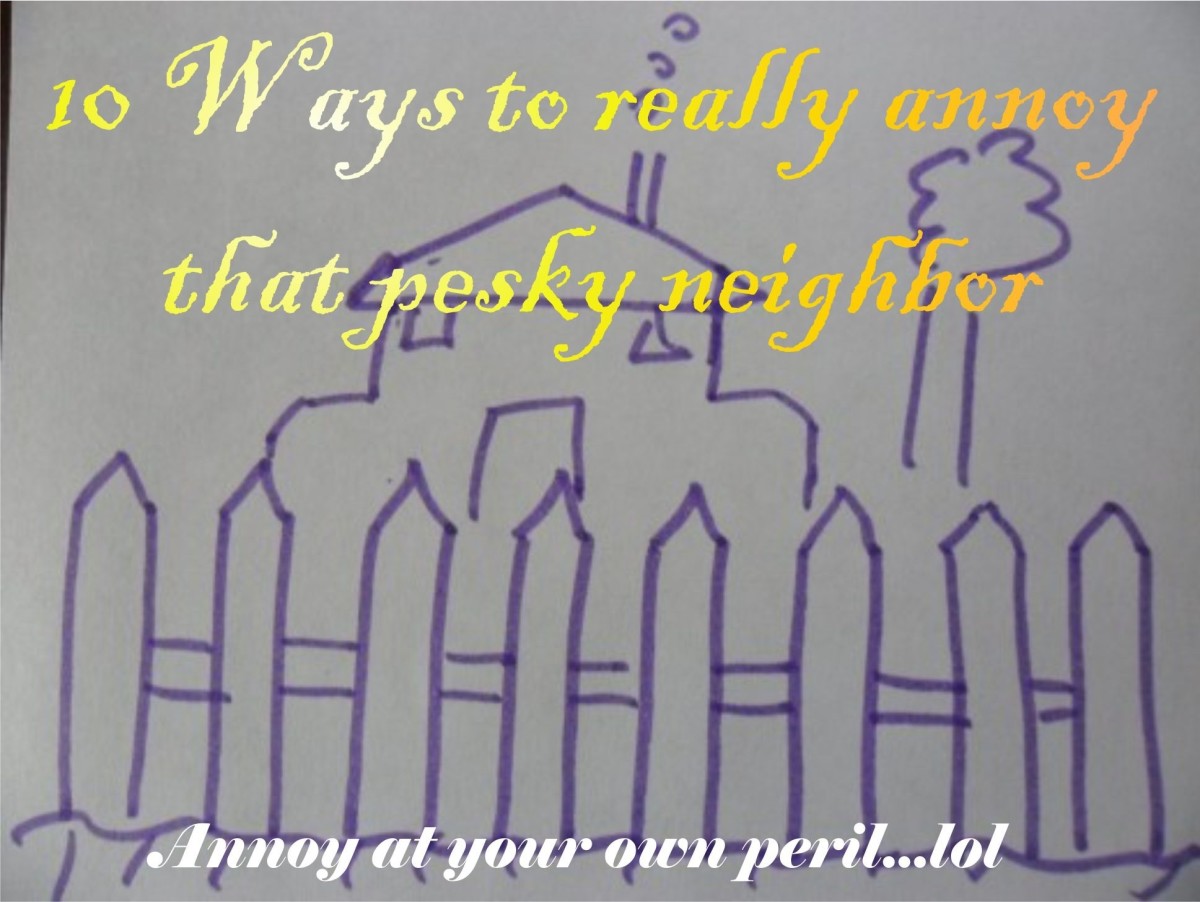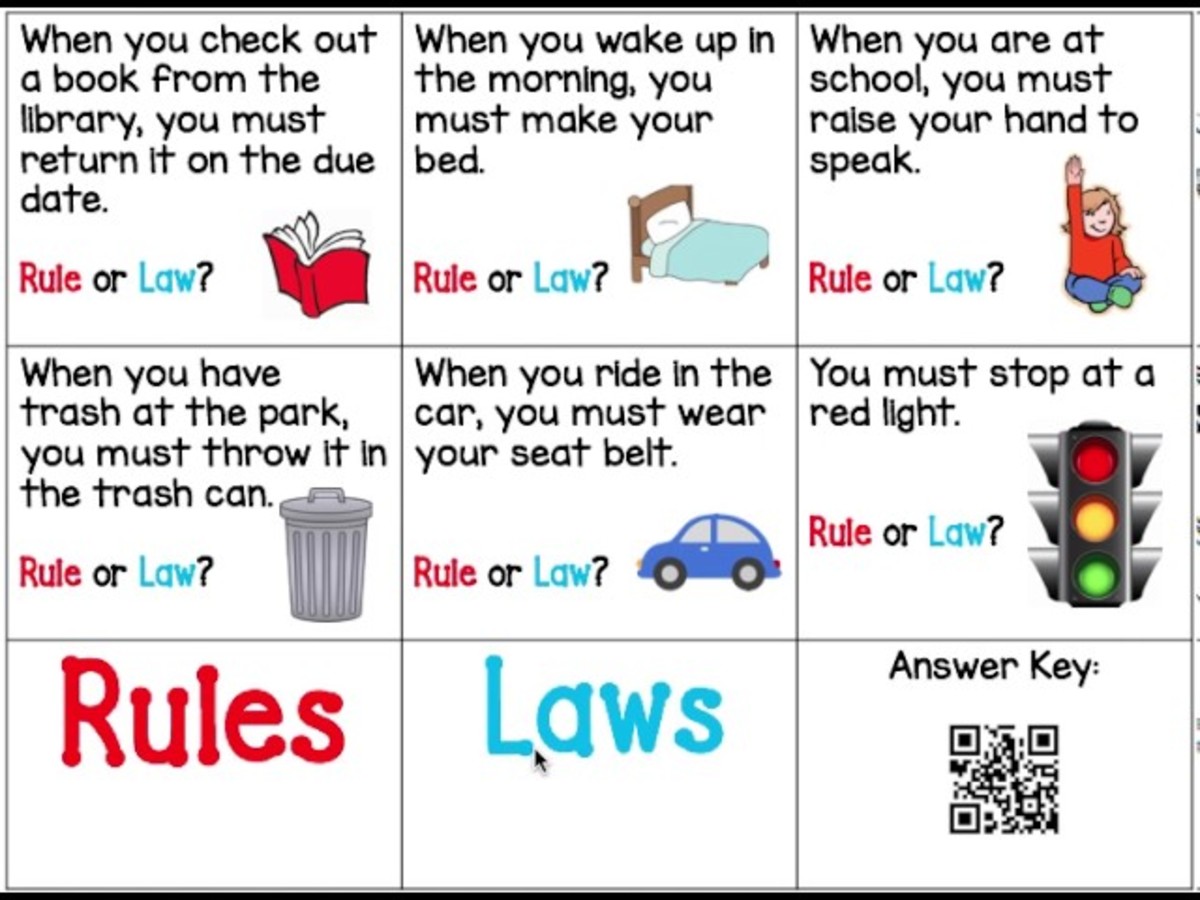Living with Less-than-ideal Neighbors

As an apartment dweller and then a condominium owner I have lived with neighbors cheek by jowl for over 25 years. I have had my share of bad neighbors. I have also been a bad neighbor.
One very important factor in neighbor relations is, who has the power? Power is often a deciding factor in how problems are resolved. Do you rent a condominium, and is your problem neighbor an owner? If so, they have the power, because they vote in the association. That means you are better off trying to deal with them directly unless the problem is such that it falls into the realm of building code violation or city ordinance violation. In that case you can appeal to governmental authorities for help.
For example, if the problem is that your neighbor is a prostitute, call the police every time they bring a client home. They will have to either move, do business elsewhere, or make a deal with you in order to continue to make their living at home.
Strategies for getting along with bad neighbors are:
- Diplomacy and compromise
- Confrontation
- Authorities
- Retribution

Diplomacy and Compromise
Diplomacy and compromise are useful when both parties are not completely unreasonable. To determine this, one must be objective enough about the situation to be able to judge oneself. A little introspection is good. Are they the problem, or are you? Answer that question before you begin to address the problem. If you are part of the problem, go into the negotiation prepared to change. If you are the problem, there is no need to involve an innocent party.
The currency of diplomacy is communication and negotiation. If you have a problem with your neighbor, you owe it to yourself and your neighbor to communicate that problem. Don't sit in your place and stew, allowing your anger to fester. Mention it to your neighbor and see what they say. Then you have a place to start your negotiations.
Diplomacy in this case is the art of making a deal. For example, if your neighbor plays loud music all the time, you can negotiate volume, time of day, and choice of music. You can mention that you have a right to the enjoyment of your home and that their activity is impeding this right. Tread lightly to keep the door open for compromise. Perhaps there are city ordinances that pertain to your neighbor's behavior. You might mention politely that you are considering contacting the authorities about this behavior to determine if it is lawful, but save that as a last resort.
Try to build a win-win situation by enlisting the aid of your neighbor. In this way you may be able to build a good neighbor out of a bad neighbor.
Confrontation
Confrontation should only be used when all diplomatic efforts have failed.
Your neighbor may make threats of violence. You do not want the matter to become physical, especially if you have a family. Do not make counter threats. A call to your local police might be a wise choice.
Confrontation does not have to be physical. If you are a ninety-pound poet, you can write the person a blistering note. You can send them a confrontational email and cc: the condo association or your common landlord. And you can do all this while assiduously avoiding them in the hall.
Before you use confrontation, you should be absolutely sure you are right. I once wrote my upstairs neighbor an angry note for pounding on his floor (our ceiling) to tell my family to quiet down. I was reacting because my family said this scared them. It turned out that my wife and children were playing soccer in the condo and pictures were falling off my neighbor's walls. It was an embarrassing moment for moi, let me tell you.
As a tool of diplomacy, confrontation can be useful to indicate that since your neighbor is not agreeing to be reasonable, you are prepared to take the issue to another level.
Retribution
Retribution should be avoided because it is usually unproductive and tends to work both ways. If you take revenge upon your neighbor, your neighbor will likely feel empowered to take revenge upon you and yours. To avoid negative consequences, the retribution must be either completely secret or very public. If you have wide support among your other neighbors and the retribution is taken publicly with your offending neighbor present, the bad neighbor, confronted with universal opposition, may be convinced to rethink their position.
Caution: once retribution is taken its effects are very difficult if not impossible to reverse: another reason that retribution is to be avoided whenever possible.
Authorities
Know your rights. Most cities and towns have ordinances against bad behavior and officials and bureaucrats just itching to enforce them. The general gist of the rules is that everyone has a right to the enjoyment of their home without interference from anyone else, unless said enjoyment interferes with someone else's enjoyment of their home. Your neighbor has a right to play misogynist rap music - up to a certain volume and ending at a certain time of night. You have a right not to hear what your neighbor calls music - up to a point.
The downside of using authorities to settle neighbor disputes is that when they decide the issue, you must live with their decision or challenge it through the bureacracy or in court. It is usually much better to work out a deal with your neighbor yourself if their behavior is not patently illegal.
However, if after a little research you find that your neighbor's behavior is clearly outside the law, call in the authorities every time the behavior occurs. Do not show mercy, because you want the authorities to take your complaint seriously. If you are not consistent it sends the message that sometimes the behavior is okay and sometimes it's not. You want to send the consistent message that the behavior is never okay.
© 2009 Tom rubenoff








